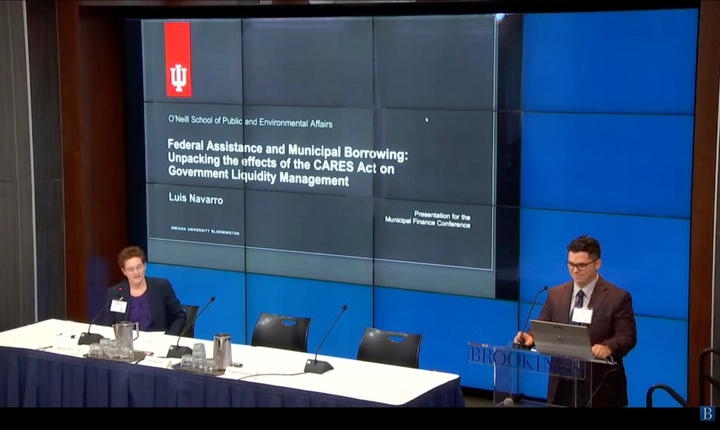Federal Assistance and Municipal Borrowing Unpacking the Effects of the CARES Act on Government Liquidity Management
Jul 18, 2024· ·
0 min read
·
0 min read
Luis Navarro, PhD
 Image credit:
Image credit:Abstract
Access to cash can affect the ability of local governments to respond to crises. Federal aid to local governments can supply this directly, though the effectiveness on a dollar-per-dollar basis depends on its complementary or substitutability with local borrowing. Through this lens this paper examines the effects of the Coronavirus Relief Fund (CRF) on local governments borrowing using a regression discontinuity design that exploits the quasi-experimental setting induced by the fund eligibility criterion imposed by the US Treasury. The findings indicate that recipient governments observed mild reductions in borrowing costs and increased their debt issuance on the primary market, with no significant spillovers to the secondary market. Moreover, this analysis provides some suggestive evidence on the liquidity management undertaken by local governments. It documents an increase in the issuance of short-term debt, at the expense of reductions on the issuance of longer-term bonds. Together, these findings shed some light on the mechanisms through which federal aid to local governments translates into improved borrowing conditions on the bond market.
Date
Jul 18, 2024 12:00 AM
Event
Brookings 13th Annual Municipal Finance Conference
Authors
Assistant Professor, Public Finance & Financial Management
I am an Assistant Professor of Public Finance and Financial Management in the Evans School of Public Policy and Governance at the University of Washington. My research interests include public finance, state and local tax policy, fiscal federalism, financial management, municipal debt, and generally the intersection of public economics and public administration. I graduated with a PhD in Public Affairs (Public Finance and Policy Analysis) from the O’Neill School of Public and Environmental Affairs at Indiana University, Bloomington.